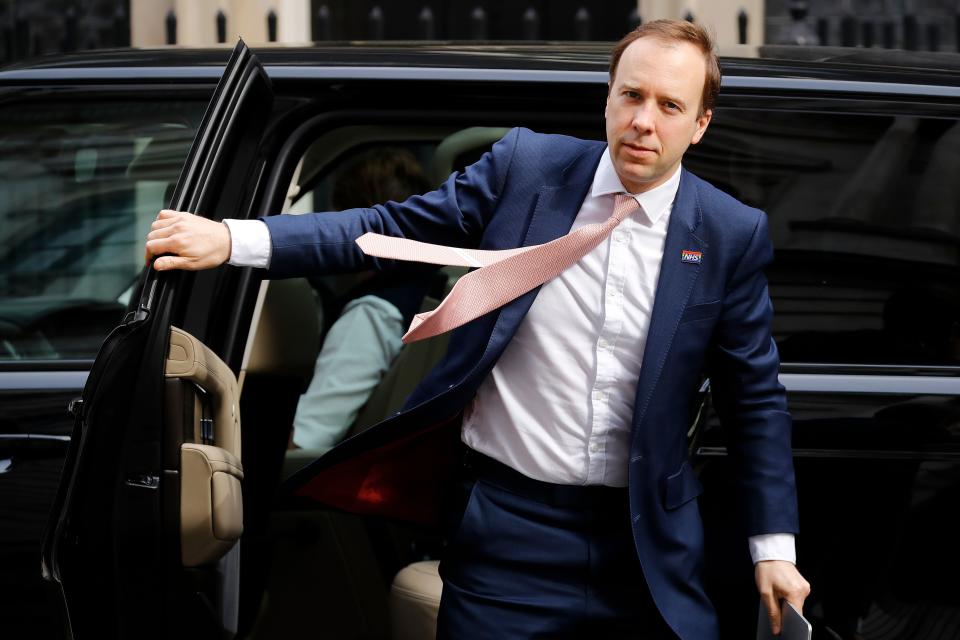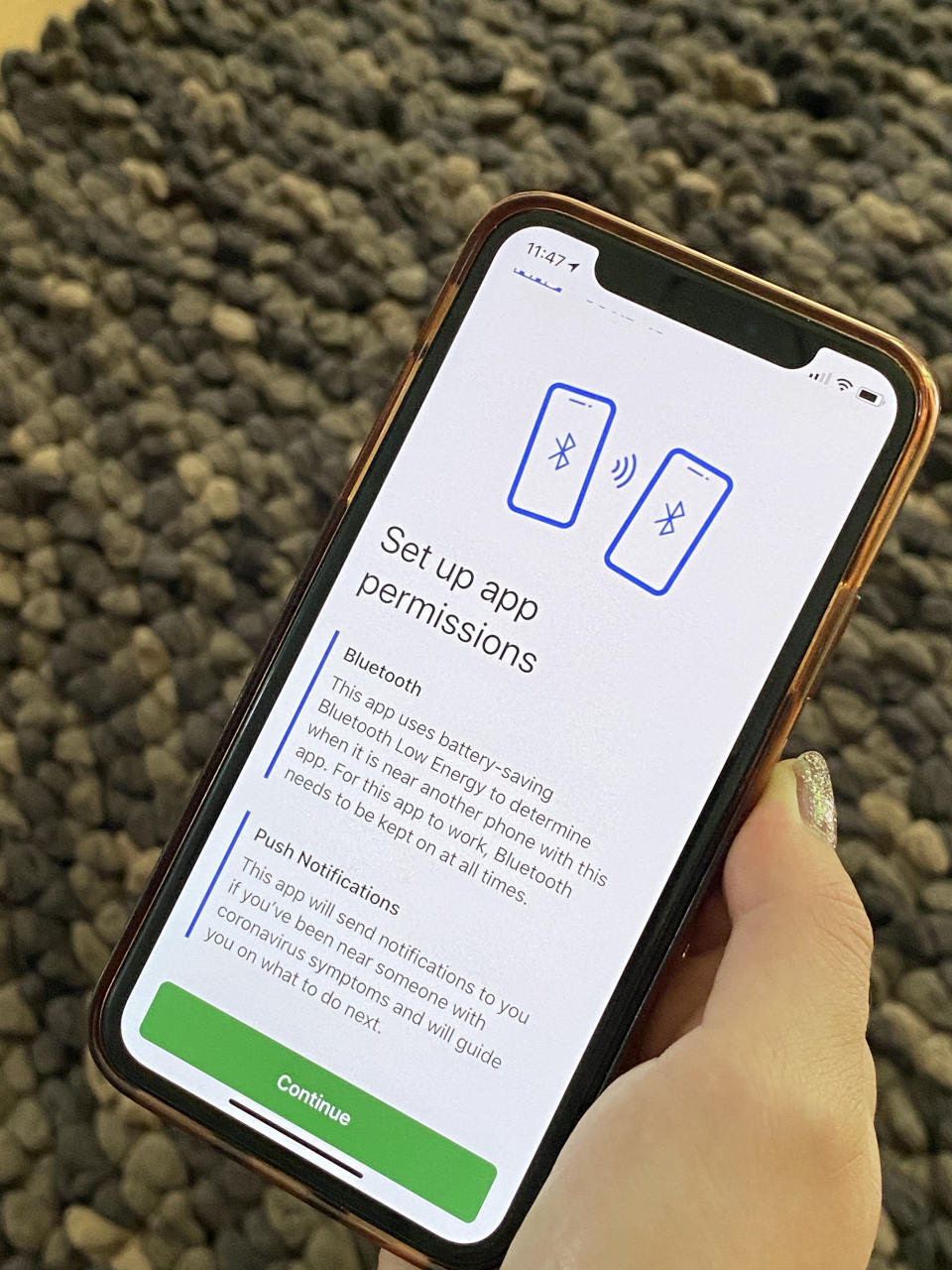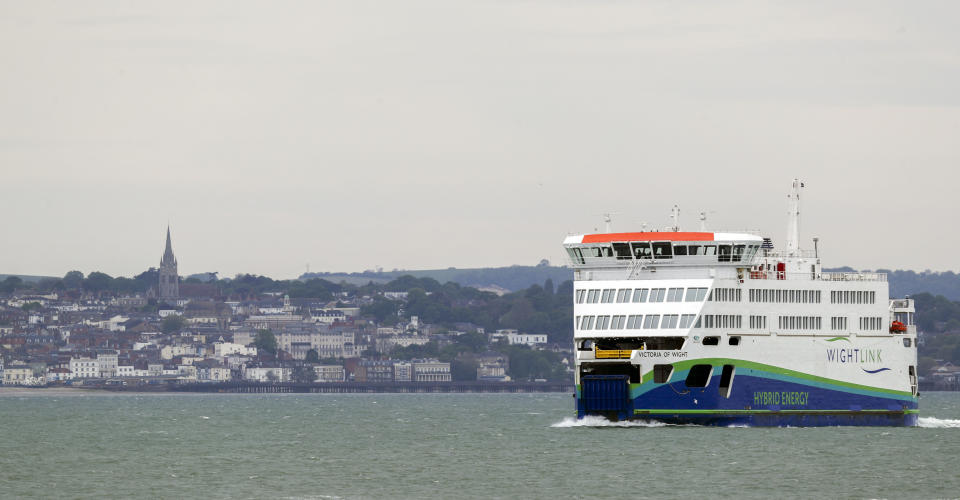Coronavirus: Data from NHS tracing app 'could be kept for research purposes', MPs told

Tracking data from the NHS coronavirus tracing app may be kept for research purposes, MPs have been told.
Ministers are urging the public to sign up to the app, which started to be trialled on Tuesday on the Isle of Wight, as a way out of the current COVID-19 lockdown.
On Tuesday, health secretary Matt Hancock dismissed warnings by civil liberties campaigners that the contact tracing app could open the door to widespread "state surveillance", amid concerns it could face a legal challenge.

But in a briefing to MPs on Monday, Matthew Gould, the chief executive of NHSX, the health service’s digital arm, said data may be kept for research.
The Register reported that he told the Joint Committee on Human Rights: “The data can be deleted for as long as it's on your own device.
“Once uploaded all the data will be deleted or fully anonymised with the law, so it can be used for research purposes.”
He said the NHSX app would auto-delete contact data that isn’t uploaded to government servers, but that if it has been shared by choice with the NHS, then it could be retained for research.
Gould insisted data stored on the app would not be shared with tech giants Apple and Google, nor would it be used by police.
He said: "We have said the data will only be used for health, public health and associated research purposes - it won't be used for law enforcement.
"We will have proper procedures in place consistent with law that will make sure that only those who have an appropriate health or public health reason for seeing the data do so, and they do so under very clear conditions and criteria."
Ministers have run into opposition from some Tory MPs and campaign groups concerned about the potential for the state to monitor individuals' movements and contacts through the app.
Hancock insisted it is "completely wrong" to say that the app represents a threat to civil liberties.
Instead, he said it is a "very, very positive step" which will enable people to regain some of the freedoms they had lost as a result of the lockdown.
Latest coronavirus news, updates and advice
Live: Follow all the latest updates from the UK and around the world
Fact-checker: The number of COVID-19 cases in your local area
6 charts and maps that explain how COVID-19 is spreading
The new NHS COVID-19 app is central to the government's "test, track and trace" strategy for controlling the spread of the disease while easing social distancing rules.

Hancock said concerns about the app expressed by groups such as Amnesty International UK - which warned they are "opening the door to pervasive state surveillance" - are misplaced.
He told BBC Breakfast on Tuesday: "The purposes of this are purely and simply to control the spread of the virus, which is really important.
Watch the video below
“We've all had to give up significant infringements on our liberty - for instance, with the social distancing measures and the lockdown - and we want to release those, and this approach will help us to release them."
The app uses Bluetooth to track and trace contacts between users - alerting people if someone they interacted with has displayed symptoms or tested positive for the virus.
Officials insist it is designed with privacy and security "front of mind", with the data stored on an individual's phone until the point they contact the NHS to report symptoms and request a test.
However, Amnesty International UK director Kate Allen said ministers need to explain why - unlike other European countries - Britain is establishing a central database to store information.
"We remain concerned that the government is using the coronavirus pandemic to normalise technologies that threaten our privacy rights, and which the public would not accept in ordinary circumstances," she said.
More than 175 UK academics working in the fields of cyber security, privacy and law have signed a joint letter, expressing they too fear it could open the door to surveillance once the pandemic is over.
Ministers have said that if the pilot on the Isle of Wight - beginning on Tuesday with NHS and council staff - is successful, the app could be rolled out across the country within weeks.
NHSX has pledged to publish the source code of the app so that it is open to public scrutiny.

 Yahoo News
Yahoo News 

